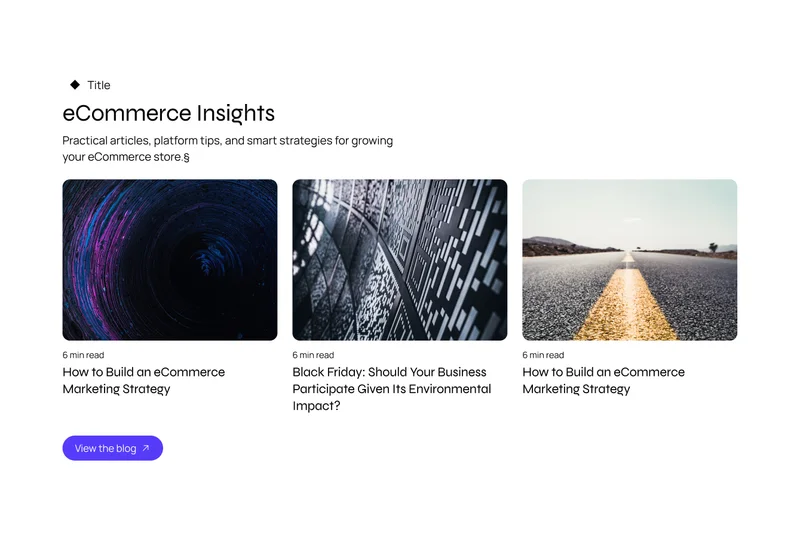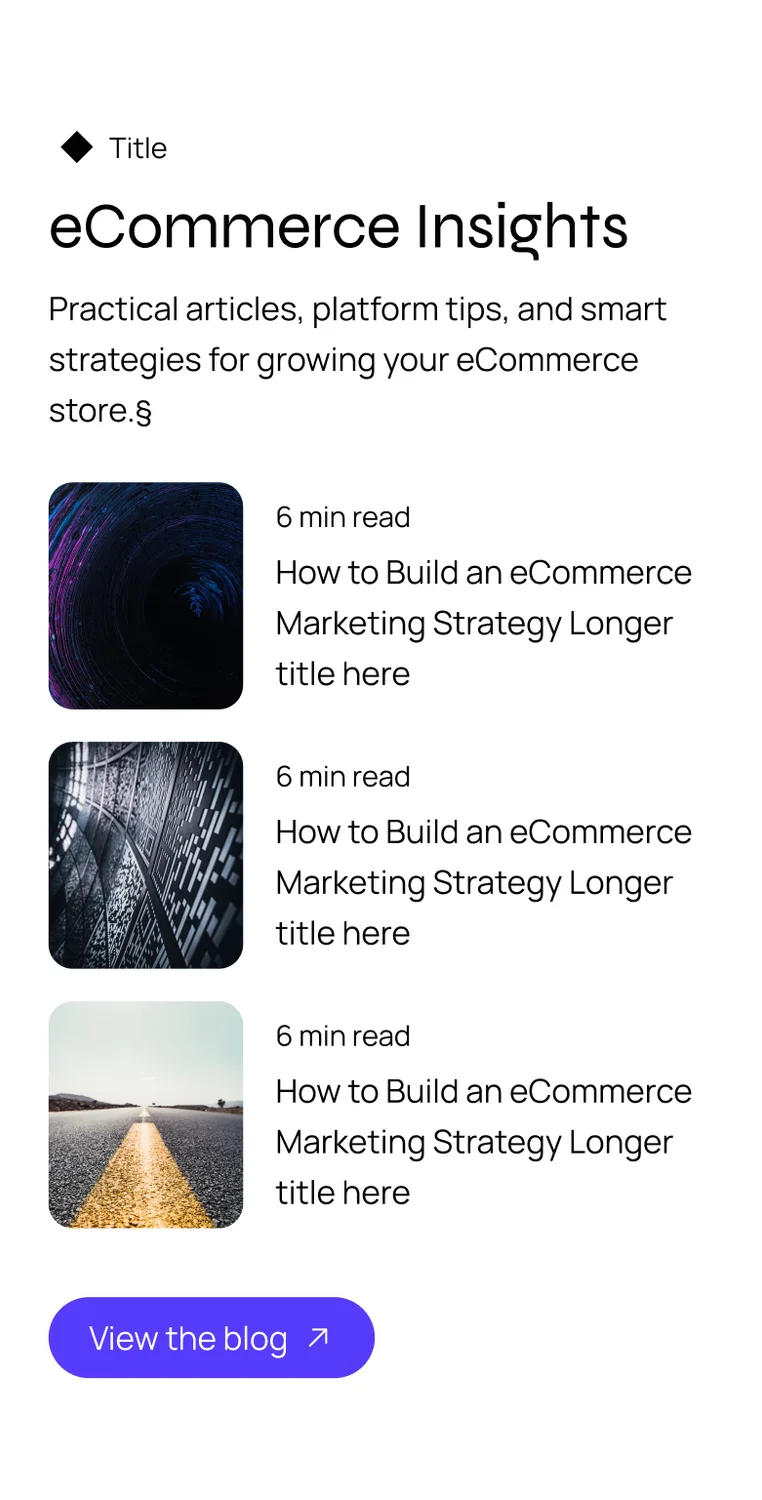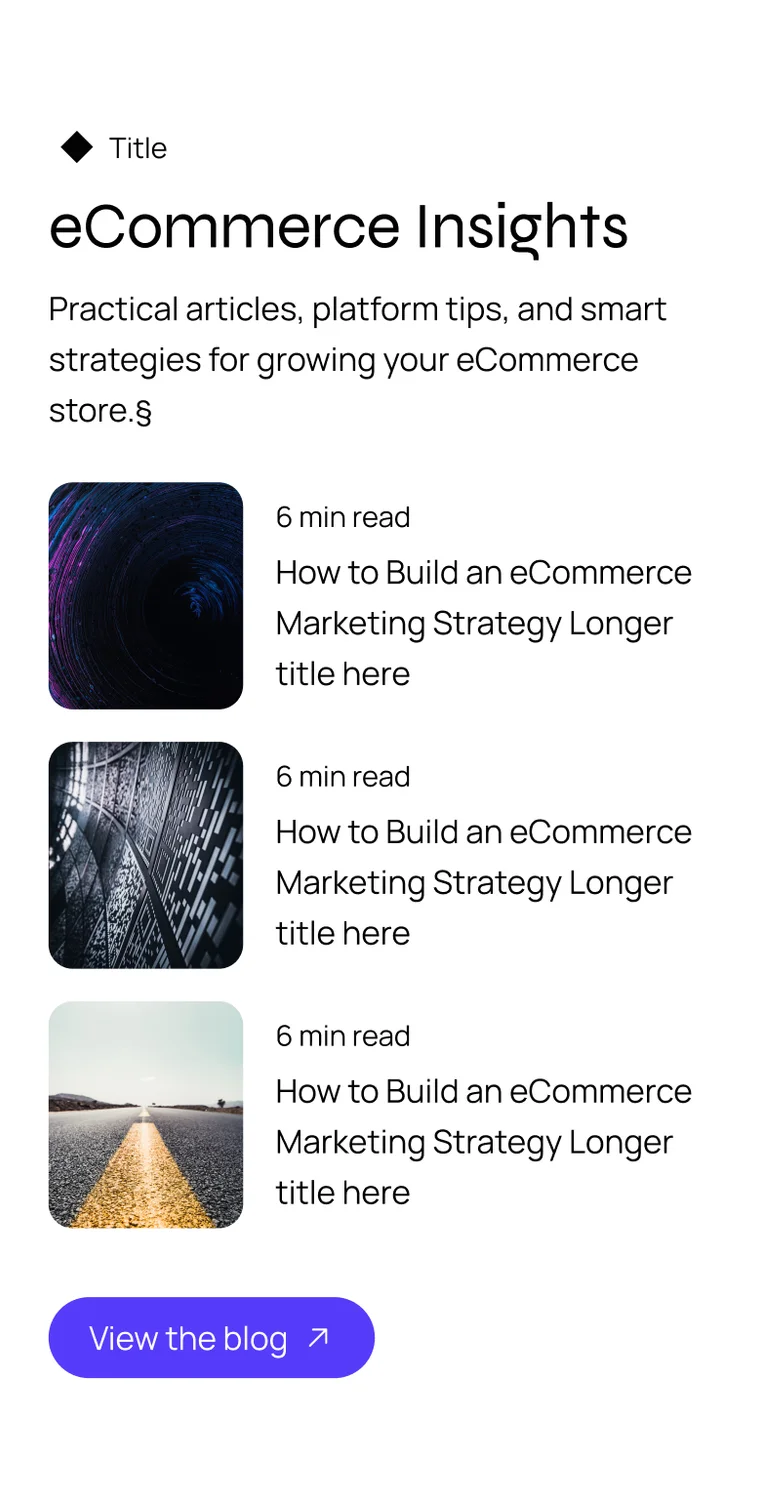July 1, 2024
Starting an eCommerce business in 2024 is a lucrative venture with the rapid and continuous growth of online shopping. However, stepping into the world of eCommerce requires careful planning and execution. In this comprehensive guide, we will walk you through the basic steps of setting up an eCommerce business.
Step 1: Research and Plan Your Business
Identify Your Niche
Determining the right niche is crucial. Conduct thorough research to understand the demand, competition, and profitability of your chosen market. Tools like Google Trends, Keyword Planner, and market analysis reports can provide valuable insights.
Choose Your Products
Selecting the right products is key. Consider factors such as popularity, profit margins, longevity and your personal interest or expertise in the product category. Conduct competitor analysis to see what similar businesses are offering and identify gaps in the market. Additionally, assess the supply chain and logistics to ensure you can consistently stock and deliver your products efficiently. Remember, a well-chosen product range can significantly impact your business's success and customer satisfaction!
Create a Business Plan
A solid business plan outlines your goals, target audience, marketing strategy, and financial projections. This document will serve as a roadmap and is essential if you plan to seek funding from investors or banks. Your goals and target audience are also useful for any development or design agencies you enlist to help set up your online presence.
Step 2: Choose Your eCommerce Platform
Why Magento?
When it comes to creating an eCommerce website, selecting the right platform is paramount. Magento stands out for several reasons:
Scalability: Magento can handle mid-sized businesses to a large enterprise.
Customisation: It offers extensive customisation options to tailor your site to your specific needs.
SEO-Friendly: Magento's built-in SEO features help your site rank higher in search engines.
Community Support: A large community of developers and a robust marketplace of extensions.
For more detailed information on Magento, visit Magento's official site.
Other Platforms to Consider
While we are Magento specialists, other platforms to consider include Shopify, WooCommerce, and BigCommerce. Each has its own set of pros and cons, which you should weigh against your business needs. No platform suits every business type, so it’s important to conduct your own research.
Step 3: Register Your Business
If you are based in the UK, you'll need to register your business with Companies House. Decide on your business setup (sole trader, partnership, limited company etc) and ensure you comply with all legal requirements.
For more information, visit GOV.UK's guide on starting a business.
Step 4: Develop Your eCommerce Website
Domain Name and Hosting
Choose a memorable domain name that reflects your brand. To future-proof against competition, consider purchasing other domains similar to your brand name.
Sourcing a reliable hosting service will ensure your website runs smoothly. There are several factors to consider with hosting including budget, support, scalability and security. Some platforms also have hosting included so consider this and the potential costs when researching eCommerce platforms.
Design and Development
Design is key to ensuring your website stands out against the competition so focus on creating a user-friendly and visually appealing website. To give your website the best chance of success, you may want to enlist the help of a UX/UI designer who will help you create a memorable and engaging experience for your customers.
Consider the development aspect of your website. If you’re looking for a website that grows with your business, you’ll want to choose a powerful platform like Magento. Magento offers various themes and extensions to enhance your site's functionality and design - consider hiring a development agency to help you build a scalable, flexible website.
Payment Gateway
Decide which payment gateway you will use to facilitate smooth transactions. Popular options include PayPal, Stripe, and Sage Pay. Not all payment options are available across all platforms so keep this in mind when choosing your platform of choice! You may also want to do market research into your particular audience and their preferred payment options.
Step 5: Set Up Product Listings
High-Quality Images and Descriptions
Obtain high-quality images of your products and write detailed descriptions to showcase them. Higher-quality images can help boost conversions, and well-written descriptions can improve SEO.
Inventory Management
Implement an efficient inventory management system to keep track of stock levels, manage customer orders, and prevent overselling. Many platforms have this as a built-in feature.
Step 6: Implement SEO and Marketing Strategies
Search Engine Optimisation (SEO)
Optimise your eCommerce site for search to attract organic traffic including:
- Keyword research
- Improve site speed
- Optimise for mobile
- Use SEO-friendly URLs
- Internal linking
- Refresh your content
For more information, take a look at this helpful beginner’s guide by Semrush.
Digital Marketing
eCommerce & digital marketing go hand in hand. Leverage social media platforms like Facebook, Instagram, and Twitter to promote your products, encourage user-generated content and engage with customers. Many platforms have built-in features to allow for seamless cross-promotion.
Start building an email list and send regular newsletters to your audience including popular products, promotions, giveaways and exclusive updates. There are plenty of email marketing platforms to choose from with some offering powerful automation and personalisation options. Take a look at Klaviyo’s free eCommerce Email Marketing Guide to learn more.
Step 7: Launch and Promote Your Store
Before launching, test your website thoroughly to ensure there are no bugs or problematic UX. You can enlist the help of specialist QA testers, or if you are using a development agency, thorough QA and UA testing will form part of their go-live strategy.
After your site is live, use analytics tools like Google Analytics to track your website's performance and make continuous improvements. You can also use optimisation platforms like VWO to test different user journeys and features to make results-driven changes to UX and UI. Learn more about A/B testing here or explore our CRO services.
FAQs
How Much Does It Cost to Start an eCommerce Business?
The cost of starting an eCommerce business varies widely based on the platform, design, business requirements, and marketing strategies. For a Magento website, you might need to budget for:
Domain and Hosting
Design and Development
Ongoing Support and Maintenance
Hosting
Marketing and SEO
Is It Free to Start an eCommerce Business?
Starting an eCommerce business is not free. However, there are cost-effective options and free tools available which are popular with small businesses and start-ups.
Why Should I Choose Magento Over Other Platforms?
Magento's flexibility, scalability, and robust feature set make it ideal for businesses looking for a platform to grow with their business. It offers extensive customisation options, and comes with a supportive community, making it a preferred choice for many successful eCommerce businesses.
Do I Need to Hire a Developer?
Some platforms are specifically tailored to small businesses with little to no customisation requirements. These often have an extremely user-friendly interface and wouldn’t require a developer or agency to get set up.
If you are looking for something more robust and future-proof then you may want to consider hiring development resources to optimise performance, security and UX. This investment usually pays off in the long run through higher conversion rates and customer satisfaction!
How Do I Ensure My Website is Secure?
To keep your website secure, make sure it has an up-to-date SSL certificate, complies with PCI standards and you keep your website updated with security patches and latest versions.
To Summarise
Starting an eCommerce business in 2024 involves meticulous planning and research. Choosing the right platform will set you off on the right foot, and while setting up is considerably expensive, the potential rewards make it worthwhile!
For more detailed insights and personalised advice, feel free to contact us. Happy selling!
Last updated: September 9, 2024






